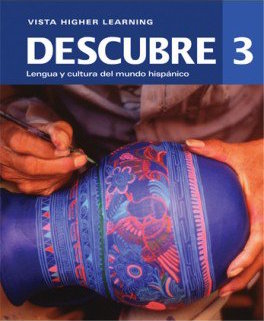
All Solutions
Page 383: Despues de ver el corto
* **El restaurante se encuentra en un lugar perdido en las montañas.** / *The restaurant is located in a place lost in the mountains.*
* **El comensal se encuentra lleno después de tanta comida.** / *The diner is full after so much food.*
* **Lo considera una ofensa porque el piensa que lo que hace es arte puro.** / *He considers it an offense because he thinks that what he does is pure art.*
* **El acude por que se encuentra hambriento.** / *He comes because he is hungry.*
* **Le promete que hablara con el chef para solventar su problema.** / *He promises to talk to the chef to solve his problem.*
* **El pobre pone una cara de desesperación al ver que le traen un plato más grande.** / *The poor guy makes a face of despair when he sees a larger plate being brought to him.*
* **Todos lo obligan a comer el jabalí.** / *Everyone forces him to eat the wild boar.*
* **Porque el chef dice que es un gran artista.** / *Because the chef says he is a great artist.*
* **Debe de ser por el miedo que le tienen todos al chef y sus ayudantes.** / *It must be because everyone is afraid of the chef and his assistants.*
* **Tal vez lo sea, parecer ser alguien reconocido, no creo que los artistas sean así, parece demasiado excéntrico.** / *Maybe he is, he seems to be someone recognized, I don’t think artists are like that, he seems too eccentric.*
* **Al final ninguno logra escapar y el chef les da un gran festín a la hora de la cena.** / *In the end, none of them manages to escape and the chef gives them a great feast at dinner time.*
* **No lo se a ciencia cierta, parece ser una situación demasiado complicada.** / *I don’t know for sure, it seems to be too complicated a situation.*
* ¿Cómo son? / *What are they like?*
* ¿Por qué están en el restaurante? / *Why are they in the restaurant?*
* ¿Cómo son sus vidas? / *What are their lives like?*
* ¿Qué opinan de Papandreu? / *What do they think of Papandreou?*
* *I believe that the gentleman at this point is more than at the mercy of the chef.*
* *Surely, like the protagonist, he must have arrived at the restaurant by chance.*
* *His life nowadays is all about being in the restaurant and eating whatever is put in front of him.*
* *He must have an idealization towards the chef, due to the Stockholm syndrome.*
* *The poor guy must have been stuck in the restaurant for a long time.*
***
|TOPICS |
|–|
|• un quirófano (operating room) y un cirujano de gran renombre. / *an operating room and a renowned surgeon.* |
|• una pasarela (runway) y una supermodelo. / *a runway and a supermodel.* |
|• un estudio de diseño y un diseñador premiado. / *a design studio and an award-winning designer.* |
| una peluquería y un estilista famoso. / *a hairdresser and a famous stylist.*|
***
* **an operating room and a renowned surgeon.**
* **En el hospital estaba siendo tratado mi primo Raúl por el gran cirujano Javier Casas, famosos por ser uno de los más grandes del mundo, el problema es que resulto ser uno de los más excéntricos también, pues antes de la cirugía mando a realizar todos los estudios habidos y por haber más de una vez, y cuando estuvo contento con los resultados, a la hora de operar, nos invito a toda la familia a entrar al quirófano para ver la cirugía, no nos quedó otra más que aceptar, y observar atento como este nos explicado donde y cuando cortaba a mi primo, mientras nos hablaba de su día a día y enseñaba los órganos de mi familiar.**
* *In the hospital my cousin Raul was being treated by the great surgeon Javier Casas, famous for being one of the greatest surgeons in the world, the problem is that he turned out to be one of the most eccentric too, because before the surgery he had all the studies done and to be done more than once, And when he was happy with the results, when it was time to operate, he invited the whole family to enter the operating room to see the surgery, we had no choice but to accept, and watch attentively as he explained to us where and when he cut my cousin, while he told us about his day to day life and showed us my relative’s organs.*

